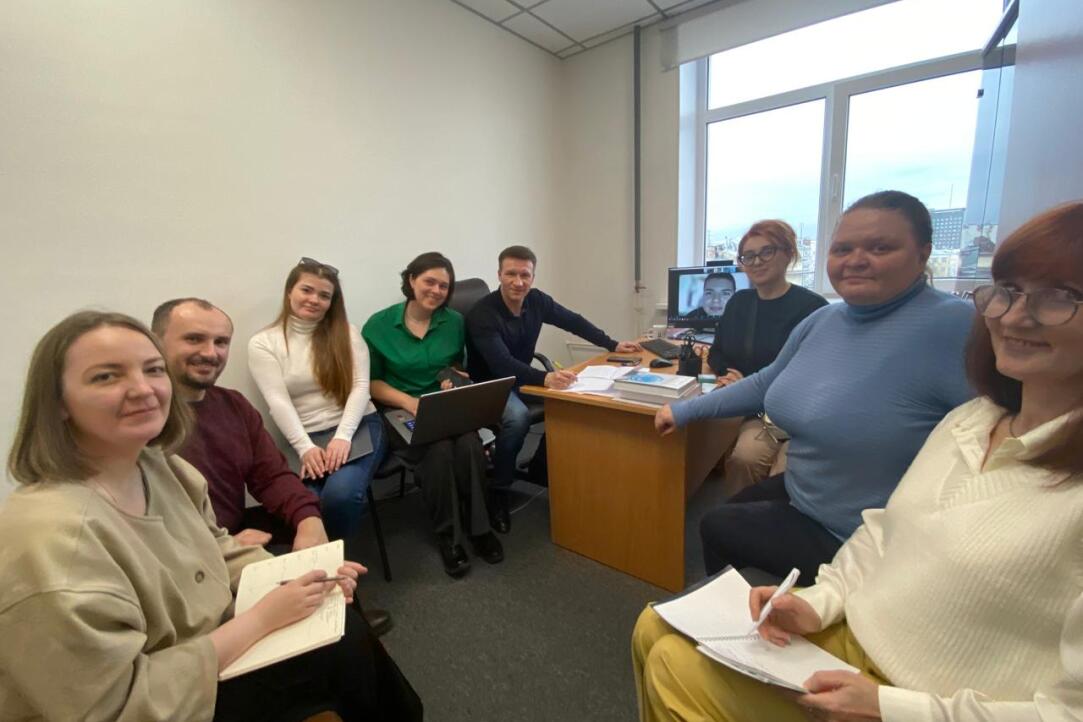A team from the Centre for Sociocultural Research won an RNF grant on the topic "Topical issues of digitalisation in Russia: socio-psychological barriers and ways to overcome them"
The project leader is A.N. Tatarko, Director of the Centre for Sociocultural Research, Doctor of Psychological Sciences. The winning project is complex and deals with the most important, from the psychological point of view, problems related to digitalisation in Russia. In recent years, digitalisation of various spheres of Russian life has been progressing at a tremendous pace. The most intensively digitalised areas are: education, public services, the financial sphere of society, and the political sphere of society. In this regard, we have proposed a project that examines the socio-psychological problems of digitalisation in the most important spheres of Russian society in order to find solutions.

On 1 August 2023, the law on the digital ruble came into force in Russia. The gradual introduction of digital currency into circulation in the long term will have a noticeable impact on the lives of Russians: it will facilitate financial transactions, as well as control over the movement of funds. Earlier surveys show that Russians are quite wary of the digital rouble. Therefore, in this project, we will focus on exploring a number of key psychological factors (values, institutional trust) that may be ambiguously related to trust in digital currency and willingness to use the digital rouble.
In Russia, there is a gap in the use of and trust in digital technologies between different age groups - young people (under 20) trust new digital technologies more and use them more actively in their daily lives than older generations. Therefore, we will explore how parent-child relationships are related to the transmission of those values that are most related to digital trust and readiness to use ICTs.
The manifestation of prosocial behaviour on the Internet is becoming a frequent phenomenon these days. The key factor contributing to the development of prosocial behaviour is traditionally considered to be trust in the potential recipient of help. At the same time, despite the high prevalence of the Internet, the specifics of establishing trust in Internet communications and, in turn, the criteria for detecting deception are still unclear. This leads to negative consequences for Russian society. Therefore, it is important to examine how perceptions of lying in the online environment affect trust and, as a consequence, prosocial behaviour online.
Current research on the use of digital technologies in the political life of the country shows mixed results. Some studies say that digitalisation of the political sphere of the country will develop civil society and strengthen the rule of law. Other studies say that it stimulates unconventional political activity, and the state's attempts to exercise control in the digital space lead to an even greater decline in the institutional trust of citizens. This raises the question: what forms of political activity are represented in the modern information space and what do Russians' preferences for forms of online political activity, in particular forms of participation in elections, depend on?
The rapid adoption of online tools is also a feature of modern education. The difficulty is that the teacher has no other choice - the digitalisation of learning is happening regardless of whether the teacher is ready for it. The present study intends to focus on individual-personal characteristics of teachers, their digital literacy and level of psychological well-being, and to investigate the attitudes of school-level representatives towards the digitalisation of education. Digitalisation in the modern world has both positive effects for employees (increased productivity, job satisfaction, etc.) and negative effects (increased digital workload, professional burnout, etc.). At the same time, studies show that the negative effects affect both workers directly related to digitalisation and social specialists. In this regard, it is relevant to study the factors and conditions that contribute to the success of professional activity and minimise the negative effects of digitalisation on social workers. This issue will also be studied in our project.
Today the project team gathered at the Centre for Sociocultural Research and we discussed how we will implement the project, planned empirical research and publications. Next year we also want to make a thematic special issue in one of the journals with the results of the research. We have very interesting work ahead of us and we will try to do it in such a way that we will not just have publications, but that the results will really become useful for Russia!

